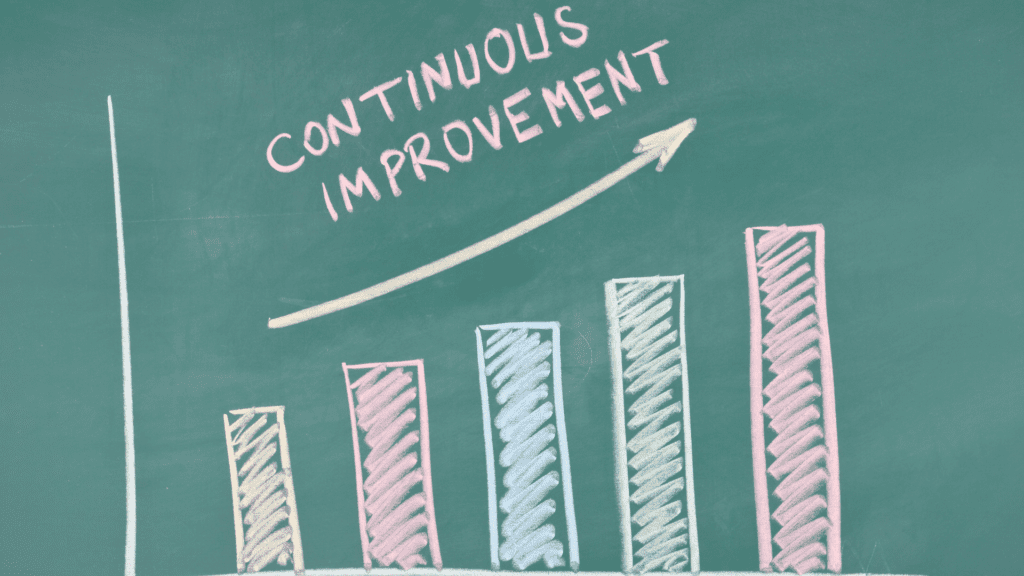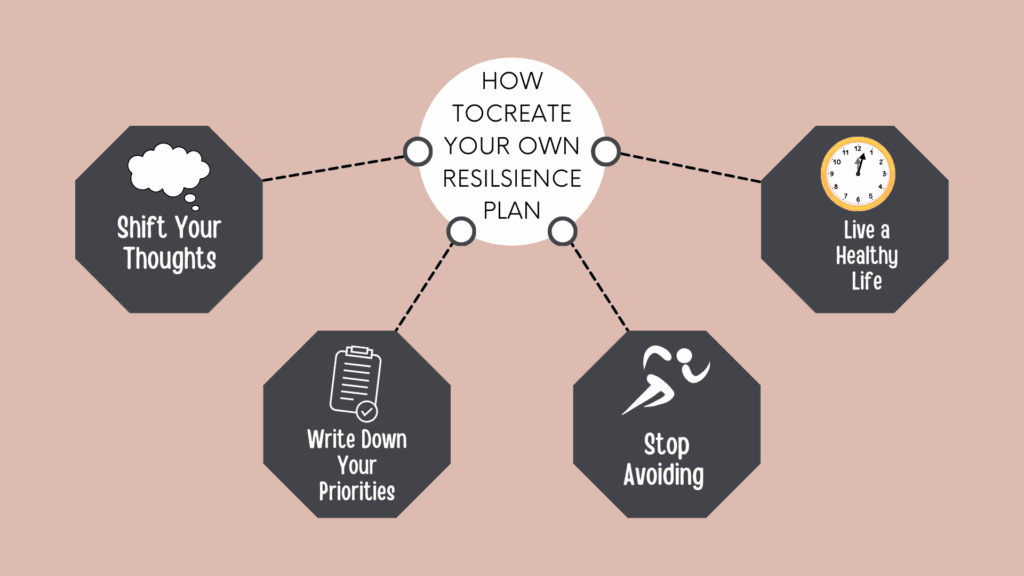So, what is resilience anyway?
Resilience is a complex psychological concept that plays a crucial role in how individuals navigate life’s challenges. According to the American Psychological Association (APA), resilience is defined as “the process and outcome of successfully adapting to difficult or challenging life experiences, especially through mental, emotional, and behavioral flexibility and adjustment to external and internal demands”.
This adaptive capacity allows people to bounce back from adversity, trauma, and stress, emerging stronger and more resourceful. It’s important to note that resilience is not a fixed trait, but rather a dynamic process that can be developed and strengthened over time. Key aspects of resilience include:
- Adaptability: Resilient individuals demonstrate the ability to adjust their thoughts, emotions, and behaviors in response to changing circumstances.
- Positive attitude: Maintaining optimism and a constructive outlook in the face of challenges is a hallmark of resilience.
- Problem-solving skills: The capacity to approach difficulties logically and develop effective solutions is crucial for building resilience.
- Strong social connections: Having a supportive network of relationships contributes significantly to an individual’s resilience.
- Emotional regulation: The ability to manage and process emotions effectively is an essential component of resilience.
Resilience is not about avoiding stress or eliminating negative experiences. Instead, it’s about developing the skills and mindset to cope with adversity effectively and grow from these experiences. As the APA notes, “psychological research demonstrates that the resources and skills associated with resilience can be cultivated and practiced”.
By understanding and nurturing resilience, individuals can enhance their ability to navigate life’s inevitable challenges, maintain mental well-being, and achieve personal growth in the face of adversity.
Shift your thoughts
In stressful situations, try to balance out your thoughts by adopting a broader perspective. “This will help you stop using the emotional part of your brain and start using the thinking part of your brain. For example, if you’re asking for a raise and your brain says you won’t get it, think about the things you’ve done in your job that are worthy of a raise. You’ll slow down the emotional response and shift your mindset from anxious to action,” Marques says.
Approach what you want
When you’re anxious, stressed, or burned out, you tend to avoid things that make you uncomfortable. That can make you feel stuck. What you need to do is get out of your comfort zone and take a step toward the thing you want, in spite of fear.
This approach is crucial because avoidance often reinforces anxiety and stress, creating a vicious cycle. By consistently facing your fears, you gradually build resilience and self-confidence. This process, known as exposure therapy in psychology, has been proven highly effective in addressing various forms of anxiety and phobias.
Moreover, taking action, even small steps, can provide a sense of control and progress. This feeling of forward momentum can be incredibly empowering, helping to break the paralysis that often accompanies stress and burnout.
For example: If you’re afraid of giving a presentation or public speaking, create a PowerPoint or a mock-up of your speech and practice it with colleagues. If you’re having conflict at home, don’t walk away from your partner — schedule time to talk about what’s making you upset. Each of these actions, while challenging, moves you closer to your goals and helps build the skills and confidence needed to overcome your obstacles.
Remember, the goal isn’t to eliminate discomfort entirely, but to learn to act effectively despite it. This skill is invaluable not just for managing current stressors, but for building long-term emotional resilience and achieving personal growth.

Stop Avoidant Behaviors
When you’re anxious, stressed, or burned out, you tend to avoid things that make you uncomfortable. That can make you feel stuck. What you need to do is get out of your comfort zone and take a step toward the thing you want, in spite of fear.
Avoidance is a natural human response to stress and discomfort, but it often worsens the situation in the long run. By consistently dodging challenging situations, you reinforce the belief that you can’t handle them, which can lead to increased anxiety and a shrinking comfort zone.
Breaking the avoidance cycle is crucial for personal growth and mental well-being. It involves acknowledging your fears and anxieties, then taking small, manageable steps to confront them. This process, often called “exposure” in psychology, helps you build resilience and confidence over time.
Remember, the goal isn’t to eliminate discomfort entirely—it’s to learn to act effectively despite it. Each time you face a fear, you’re proving to yourself that you’re capable of handling difficult situations.
Other examples might include:
- If you’re procrastinating on a big project, commit to working on it for just 10 minutes a day.
- If you’re anxious about networking, set a goal to introduce yourself to one new person at your next work event.
By consistently challenging your avoidance tendencies, you’ll gradually expand your comfort zone and build the confidence to tackle larger obstacles in the future.
Align actions with your values
Simply put, stress happens when your actions are not aligned with your values — the things that matter most to you or bring you joy. For example, you might feel stressed if you care most about your family but can’t be there for dinner, or care most about your health but drink a lot.
My suggestion is that you identify your top three values and make sure your daily actions align with them. If being with family is one of the three, make your time with them a priority — perhaps find a way to join them for a daily meal. If you get joy from a clean house, make daily tidying a priority.
Tips for success
Practice the shift, approach, and align strategies throughout the week. One trick I teach my clients, and personally use myself, is looking at my calendar on Sunday and checking if my actions for the week are aligned with my values. If they aren’t, I try to change things around.
It’s also important to live as healthy a lifestyle as possible, which will help keep your brain functioning at its best.
Healthy lifestyle habits include:
1. Get Plenty of Sleep
Adequate sleep is crucial for mental health. It helps regulate mood, improve focus, and reduce stress hormones. Maintaining a regular sleep schedule can make it easier to fall asleep and wake up at consistent times, contributing to overall mental wellness.
2. Exercise Regularly
Physical activity releases endorphins and serotonin, which are known to improve mood and reduce symptoms of depression and anxiety. Regular exercise also helps with stress relief and better sleep quality.
3. Practice Gratitude
Taking time each day to reflect on things you are grateful for can significantly improve your mental health. Practicing gratitude helps shift your mindset to focus on positive aspects of life, reducing perceived stress levels and enhancing overall well-being.
4. Build Strong Social Connections
Healthy relationships with family, friends, or colleagues can provide emotional support, reduce feelings of loneliness, and add meaning to your life. Regular social interactions are essential for maintaining mental health.
5. Limit Screen Time and Social Media Use
Excessive screen time, especially on social media, can lead to feelings of anxiety and depression. Limiting screen time and taking breaks from social media can help improve mental well-being by reducing stress and promoting more meaningful activities.
These habits are supported by research and can be integrated into daily routines to enhance psychological health.

Need resilience training?
Even the best athletes have coaches, and you might benefit from resilience training. The strength lies in asking for assistance, not in “white knuckling” this path on your own.
Consider taking an action step and finding a trained life coach or counselor. Building a plan to be resilient is not all that easy to do alone. So don’t put off building resilience because you keep trying on your own and failing, this will only push you back even further and squash any momentum you have already gained.
The right coach is out there, so keep looking! In the mean time, continue practicing the tips I have listed above as you face your own unique day-to-day stresses. This will help you learn skills that are imperative to helping you navigate through the times when dark clouds roll in and seas get rough.













